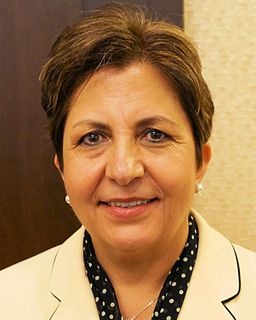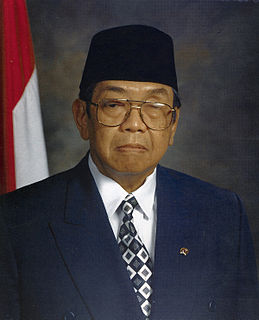A Quote by Wole Soyinka
The Nation of Islam provides an antidote in the United States to fundamentalist Islam - which is why individuals from America have to go abroad to find radical teachings.
Related Quotes
We have reaffirmed again and again that the United States is not and never will be at war with Islam. Islam teaches peace, and when it comes to America and Islam, there is no us and them, there's only us, because millions of Muslim Americans are part of the fabric of our country. So, we reject any suggestion of a clash of civilizations.
Islam is a revolutionary faith that comes to destroy any government made by man. Islam doesn't look for a nation to be in better condition than another nation. Islam doesn't care about the land or who own the land. The goal of Islam is to rule the entire world and submit all of mankind to the faith of Islam. Any nation or power in this world that tries to get in the way of that goal, Islam will fight and destroy.
After Iraq, there's been Libya, there's Syria, and the rhetoric of, you know, democracy versus radical Islam. When you look at the countries that were attacked, none of them were Wahhabi Islamic fundamentalist countries. Those ones are supported, financed by the U.S., so there is a real collusion between radical Islam and capitalism. What is going on is really a different kind of battle.
It is very easy to make wild generalizations about Islam. All you have to do is read almost any issue of The New Republic and you'll see there the radical evil that's associated with Islam, the Arabs as having a depraved culture, and so forth. These are impossible generalizations to make in the United States about any other religious or ethnic group.
And I'm not a student of religion, but I don't find anything in what the principal teachings of Islam that put us in contradiction at all. In fact, the principles are the same as what-we have a diverse religious culture. But it's kindness, it's be good to your neighbor, it's love, and it's take care of children. It's all these things that-so there's no anti-Islam.
When I was in the US, I felt that the discourse there surrounding Muslims as the other, problematising Muslims and Islam as the other was very similar to what we find in Australia, which is that the image of Islam is a constructed image in the West. We are starting from a point of view that Islam and Muslims - well Islam is a violent, misogynistic, hateful religion and that is where the debate always starts from - that presumption underlies the discourse.






































